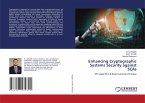The embedded systems are bound to real-time constraints with determinism and latency as critical metrics. Generally RTOS implemented through software are found to introduce a significant amount of performance degradation. Task scheduling, resource allocation and de-allocation, deadlock detection and other OS/API functions steal execution time from the tasks executing on the CPU. Scheduling algorithms play an important role in the design of real-time systems as it improves the usage of system resources. The performance loss comes in the form of increased processor utilization, response time, real-time jitter, memory footprint can be reduced significantly by utilizing latest Fuzzy Inference System based adaptive FPGA hardware task scheduler for multiprocessor systems which minimizes the processor time for scheduling activity. An adaptive framework with feedback mechanism allows processors dynamically controlled the sharing of task on multiprocessors systems. The increased computational overheads resulted can be compensated by exploiting the parallelism of the hardware and thus improves the overall performance of RTOS and Embedded system.
Bitte wählen Sie Ihr Anliegen aus.
Rechnungen
Retourenschein anfordern
Bestellstatus
Storno








